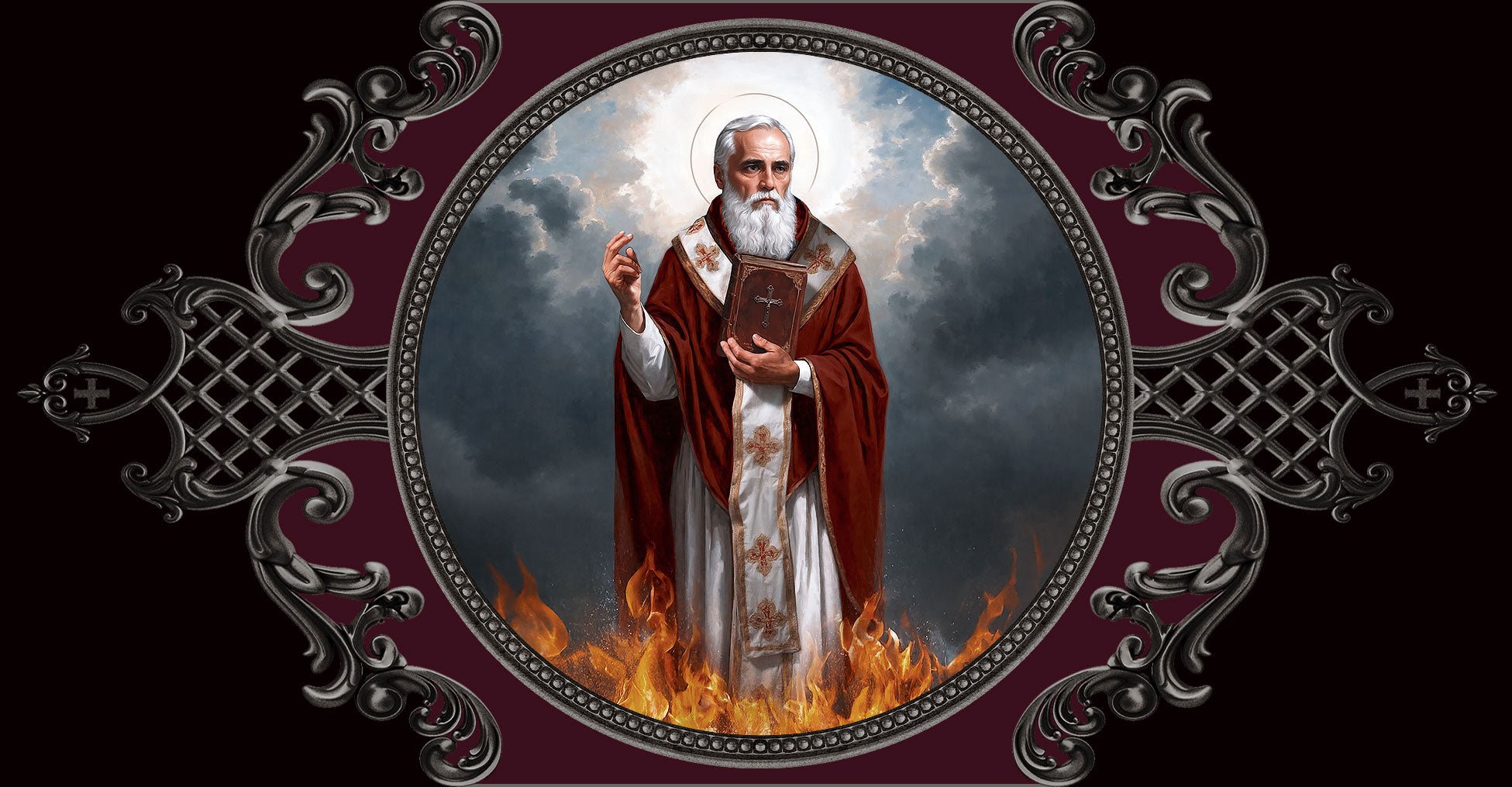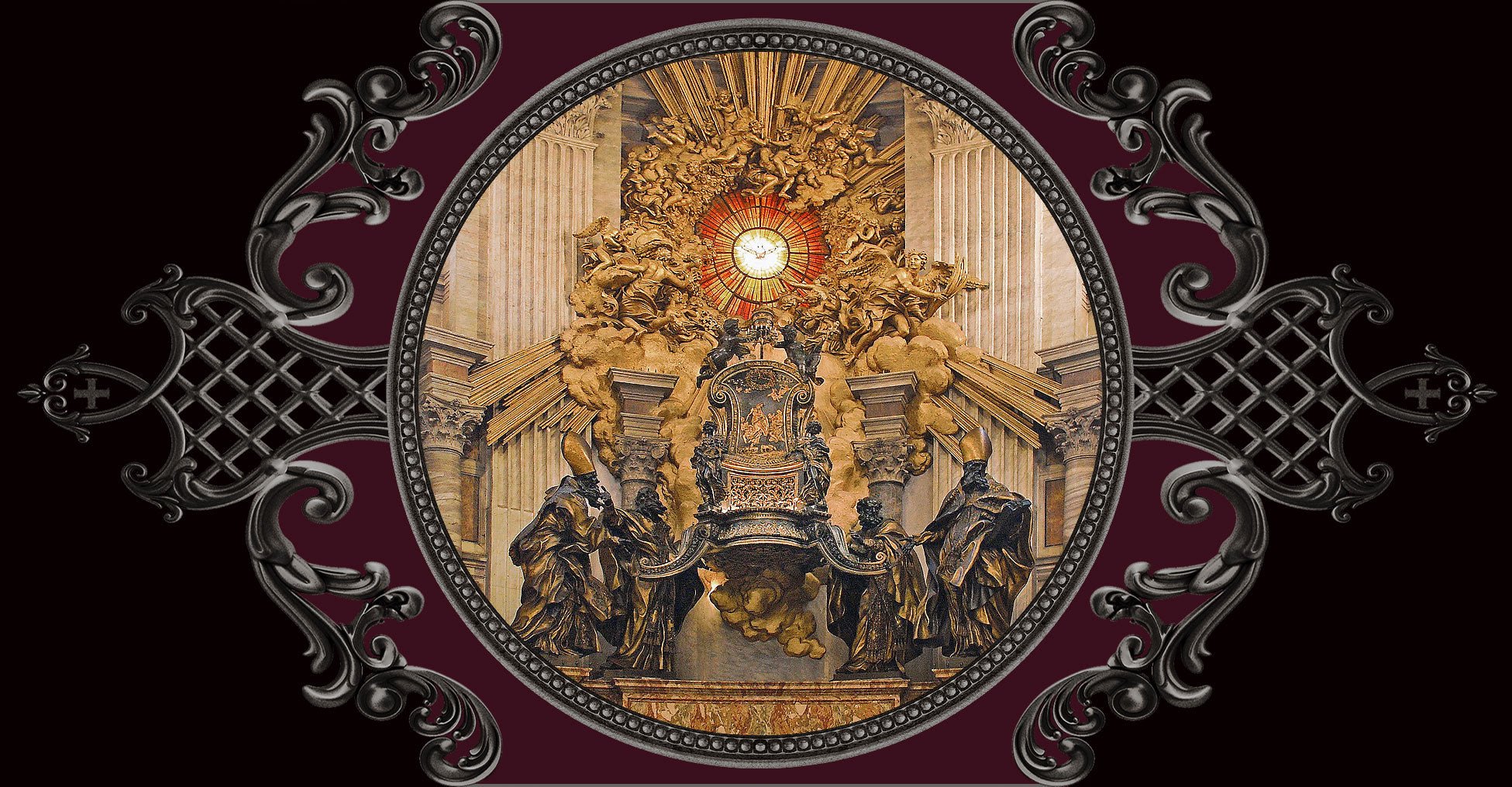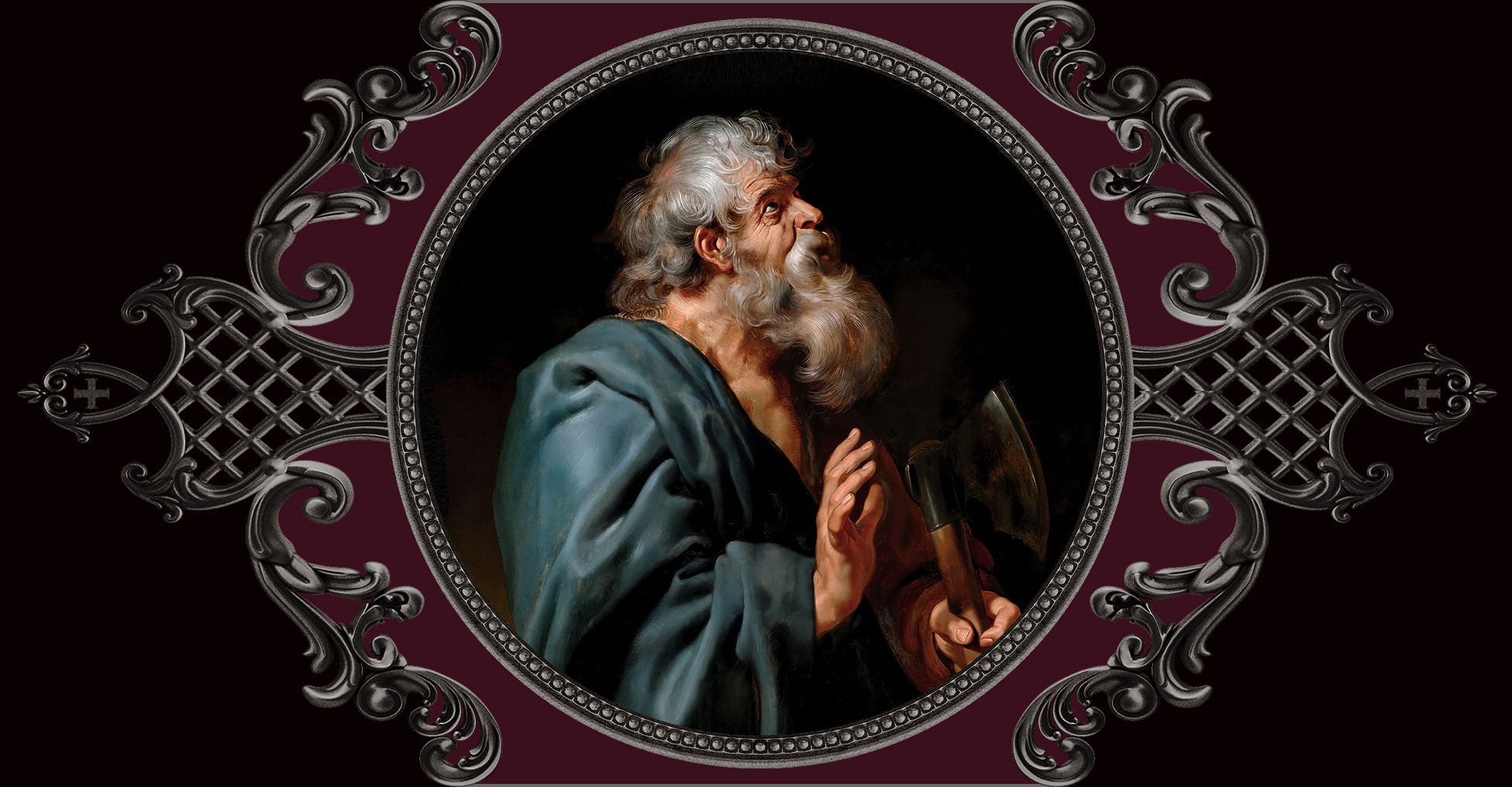
February 23 + Saint Polycarp
Polycarp, a disciple of the apostle Saint John the evangelist, is known primarily through the account of his martyrdom. It can be determined from that account that he was born around the year 69 AD and had served Christ for 86 years.
Growing up among the Greek-speaking Christians of the Roman Empire, Polycarp received the teachings and recollections of individuals who had seen and known Jesus. This important connection – between Jesus' first disciples and apostles and their respective students – served to protect the Catholic Church against the influence of heresy during its earliest days, particularly against early attempts to deny Jesus' bodily incarnation and full humanity.
Polycarp's most significant teacher, with whom he studied personally, was Saint John – whose contributions to the Bible included not only the clearest indication of Jesus' eternal divinity, but also the strongest assertions of the human nature he assumed on behalf of mankind. By contrast, certain tendencies had already emerged among the first Christians – to deny the reality of Jesus' literal suffering, death, and resurrection, regarding them as mere "symbols" of highly abstract ideas.
"For every one who shall not confess that Jesus Christ is come in the flesh, is antichrist," he wrote – citing Saint John himself – "and whosoever shall not confess the testimony of the Cross, is of the devil; and whosoever shall pervert the oracles of the Lord to his own lusts and say that there is neither resurrection nor judgment, that man is the firstborn of Satan."
Polycarp's most eloquent testimony to his faith in Jesus came not through his words, but through his martyrdom.
Around the year 155, Polycarp became aware that government authorities were on the lookout for him, seeking to stamp out the Catholic Church's claim of obeying a higher authority than the Emperor. He retreated to a country house and occupied himself with constant prayer, before receiving a vision of his death that prompted him to inform his friends: "I must be burned alive." He changed locations, but was betrayed by a young man who knew his whereabouts and confessed under torture.
He was captured on a Saturday evening by two public officials, who urged him to submit to the state demands. "I shall not do as you advise me," he answered. Outraged by his response, the officials had him violently thrown from their chariot and taken to an arena for execution. Entering the stadium, the bishop – along with some of his companions, who survived to tell of it – heard a heavenly voice, saying: "Be strong, and show yourself a man, O Polycarp!"
Although the crowds clamored for Polycarp to be devoured by beasts, it was decided he should be burned alive, just as he had prophesied. What happened next struck Polycarp's companions with amazement; they recorded the sight in a letter that they circulated after Polycarp's death.
"As the flame blazed forth in great fury," they wrote, "we to whom it was given to witness it, beheld a great miracle." The fire did not seem to touch the bishop's body. Rather, as they described, "shaping itself into the form of an arch, it encompassed – as by a circle – the body of the martyr. And he appeared within not like flesh which is burnt, but as bread that is baked, or as gold and silver glowing in a furnace."
"Moreover, we perceived such a sweet odour coming from the flames – as if frankincense or some such precious spices had been burning there." The executioners perceived that Polycarp's death was not going as planned. Losing patience, they ordered him to be stabbed to death. From the resulting wound, "there came forth a dove, and a great quantity of blood, so that the fire was extinguished."
Polycarp has been venerated as a Saint since his death in 155.



Leave a comment
This site is protected by hCaptcha and the hCaptcha Privacy Policy and Terms of Service apply.